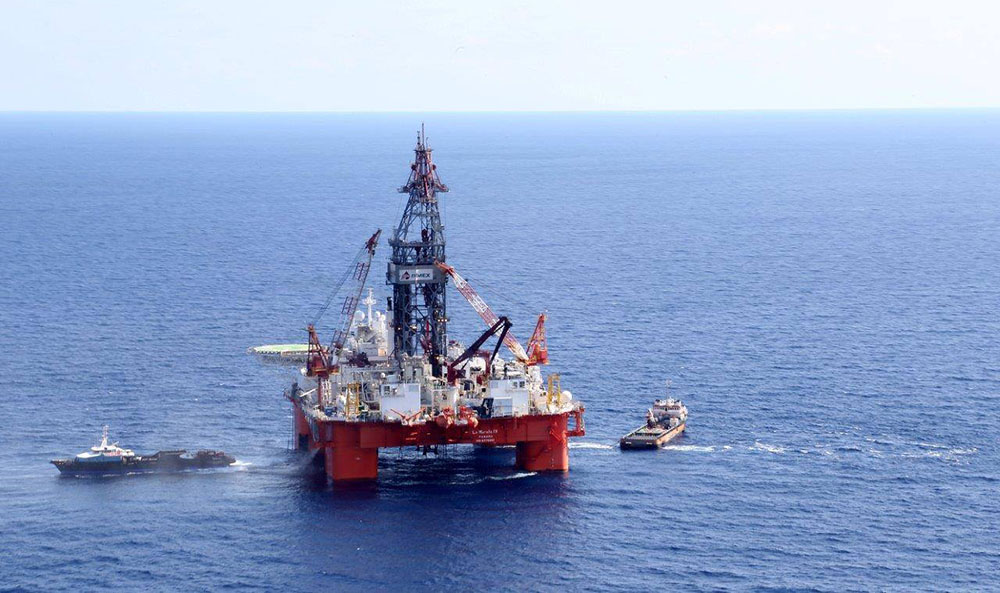(Bloomberg) — “What’s the country code for Australia?” Pemex Chief Executive Officer Jose Antonio Gonzalez Anaya asks the six people in his 44th-floor office in Mexico City on Monday afternoon. “Is it 61? This might be our new partner calling.”
It is. Andrew Mackenzie, CEO of Melbourne-based BHP Billiton Ltd., was phoning after beating a rival bid to become Petroleos Mexicanos’ first-ever foreign partner in deep-water oil and natural gas drilling. Mexico is going to have to get used to more overseas calls — companies from Malaysia, China, Norway, the U.K., France and the U.S. won rights to drill Monday in the nation’s first deep-water offshore auction that allows outside investment.
With a vote of confidence from global oil players — and, more importantly, their money — Mexico is seeking to revive its flagging output and make good on the promise that President Enrique Pena Nieto made when he pushed to open the nation’s energy industry to outsiders for the first time in more than 75 years. The result: an estimated $40 billion that will be spent to bring the areas to full production over the next 35 to 50 years. Output could reach 900,000 barrels a day.
“This is a milestone for Pemex, for the energy reform, and in that sense, for the country,” Gonzalez Anaya said in an interview peppered with swear words in his native Spanish, his bright green tie loosened around his neck following the nerve-racking morning. “Oil is a global business, and Pemex and Mexico are inserting themselves more into it.”
The morning was a mix of excitement and relief for Gonzalez Anaya, who in an April interview said that if the company didn’t find partners by 2017, it would be "in deep trouble." Now, 10 months after taking over as CEO of a company with mounting debt, declining production and falling revenues, he was ready to celebrate.
Mexico’s government had to amend the constitution to allow outside investors into the oil industry, the last part of which were nationalized in 1938. When the reforms were approved in 2013, crude prices were in the triple digits. Since then, oil has dropped by more than half, forcing Mexico to adjust the terms of the auction to ensure it attracted bidders.
"There was a very healthy mix of deep water players and I think that is exactly what you want in an auction,” Pablo Medina, a Houston-based oil and energy analyst for consultant Wood Mackenzie, said in a phone interview. “All in all, the government did a very good job at adjusting to oil prices, and this is the kind of result you get when you make the right adjustments."
BHP beat out BP Plc for the right to join with Pemex to develop the Trion offshore oil field. The Australians committed to spend at least $1.19 billion to get the area, estimated to hold the equivalent of about 500 million barrels of oil, operating. Pemex said its outlay will be zero for about four years. Bonds for the state-owned oil company rose after the deal was announced, with yields on the 2026 bonds dropping the most in four months.
‘Heyyy, Bravo!’
In addition to the joint venture, overseas producers including Exxon Mobil Corp., Total SA, CNOOC Ltd., Statoil ASA and Petroliam Nasional Bhd. won auction blocks, the first time that investors will drill for oil in the nation’s deep waters without Pemex’s participation. Eight of the 10 auction blocks got bids, with Pemex among the players jockeying for rights.
Minutes after his conversation with Mackenzie, Jorge Kim, Pemex’s legal director, looked up from his phone.
"We won the north block three," Kim announces. In a bid with Chevron Corp. and Japan’s Inpex Corp., Pemex won the right to explore for crude in the third block auctioned in the Perdido fold belt, where Mexico successfully sold all four areas up for sale.
Gonzalez Anaya leaps from his chair, shouting "Heyyy, bravo!" and pumping his fist as he walks to the other end of the conference table and picks up a large red land-line phone. It’s the famed phone that connects to Mexico’s ministers and Pena Nieto — and Gonzalez Anaya can’t wait to tell Energy Minister Pedro Joaquin Coldwell the news.
He hangs up, yells "yes!" again and walks back to his seat.
"This proves Mexico is seen as an attractive destination for investment in the oil industry," he says. "This is a historic day."
Bloomberg News by Adam Williams



.JPG.small.400x400.jpg)

